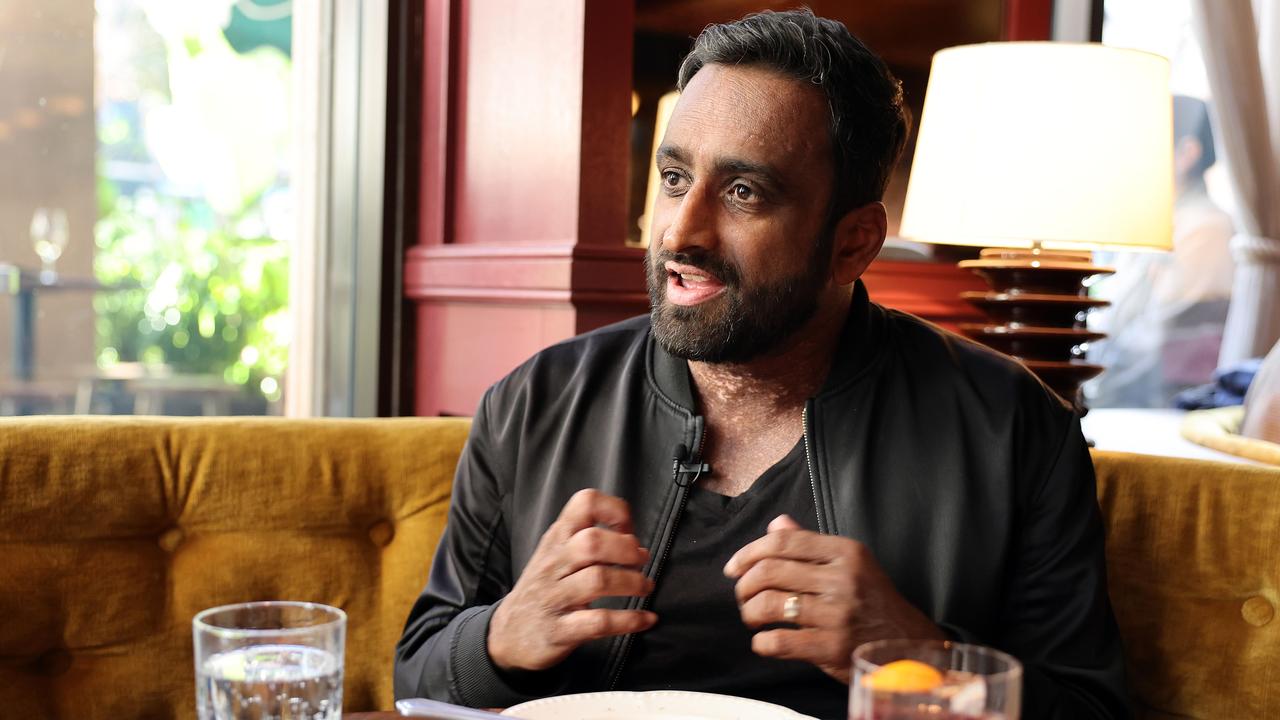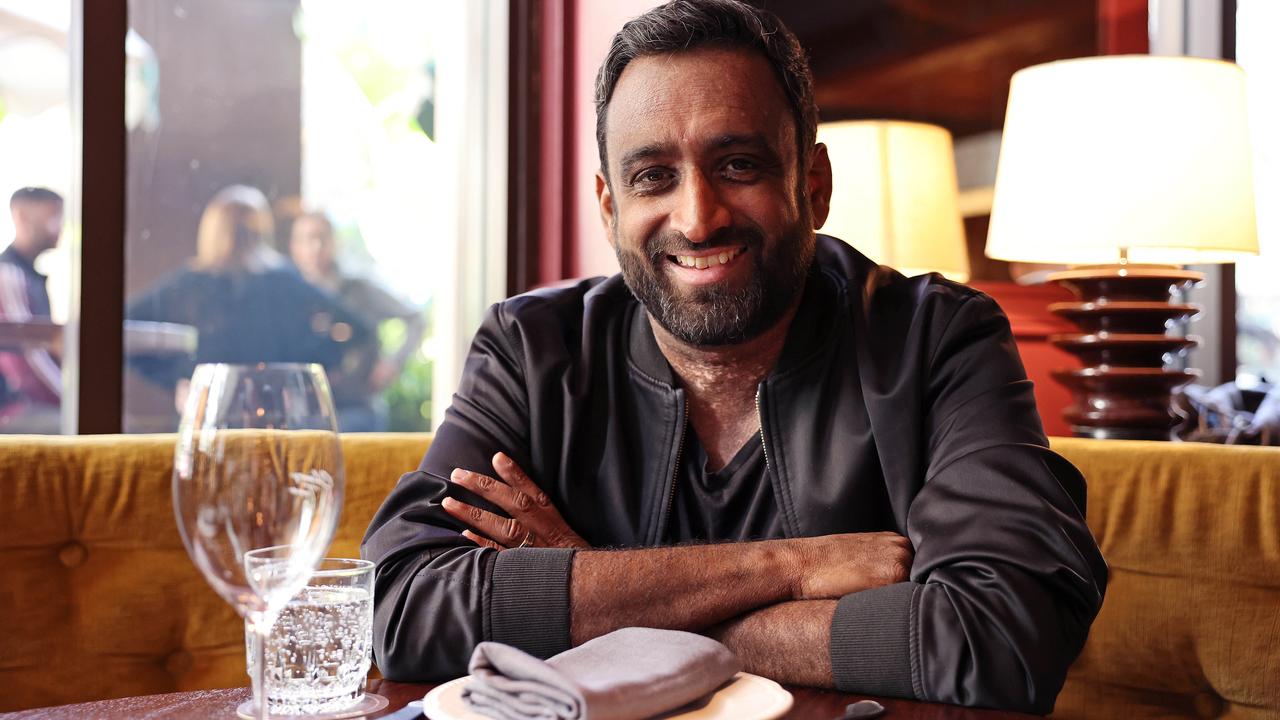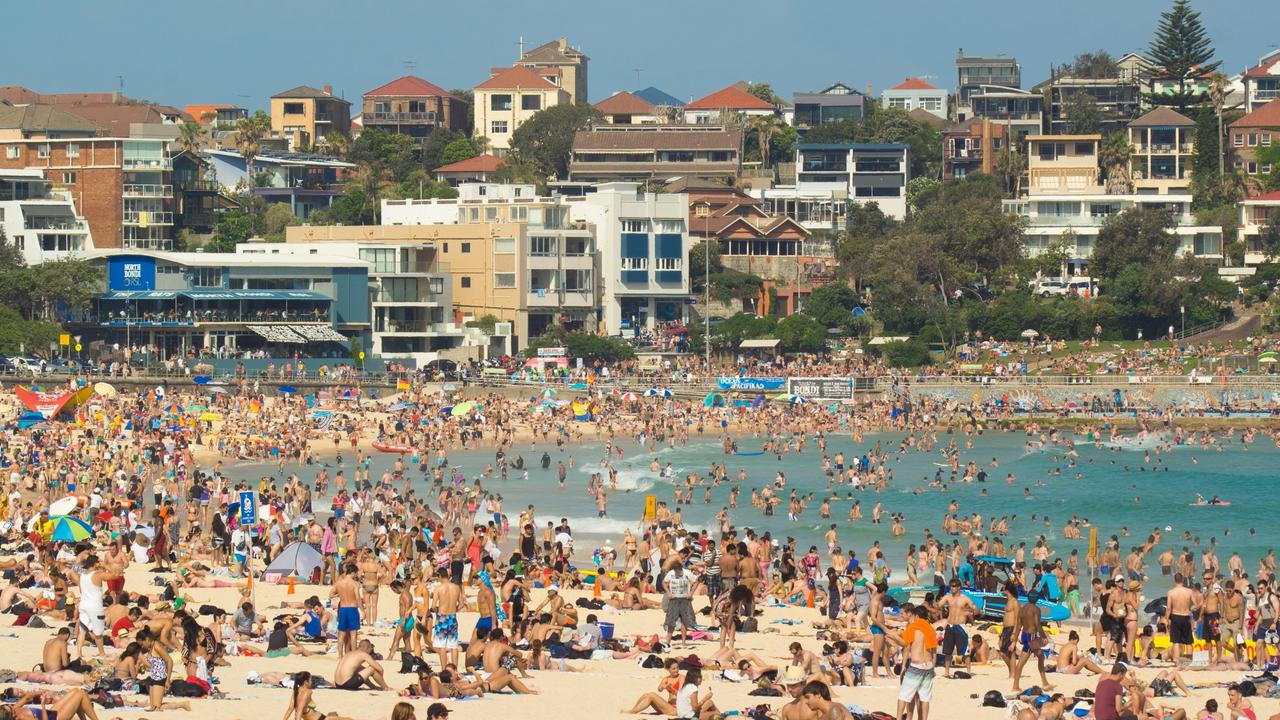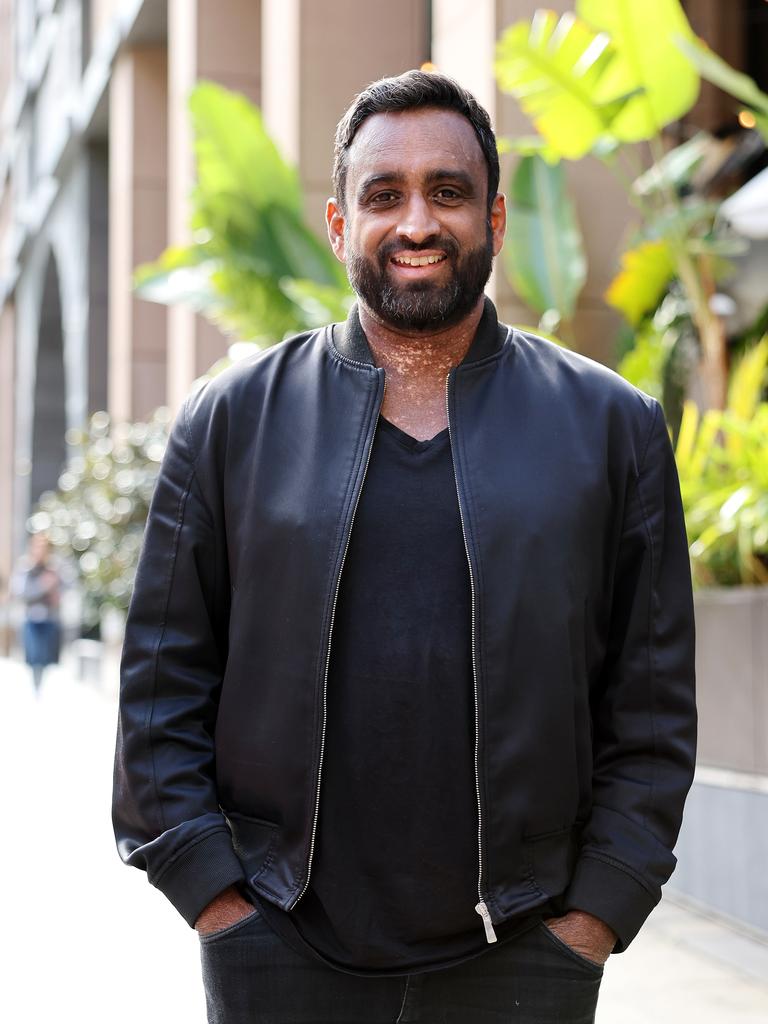High Steaks: 24-Hour Economy Commissioner Michael Rodrigues talks about Sydney’s nightlife
In this High Steaks interview 24-Hour Economy Commissioner Michael Rodrigues talks about his plans to invigorate Sydney from 6pm-6am — and why NYC isn’t the template he’s using.

NSW
Don't miss out on the headlines from NSW. Followed categories will be added to My News.
For many people, walking into a party, restaurant, concert or bar knowing no one is a reason not to leave the house. For NSW’S 24 Hour Economy Commissioner Michael Rodrigues, it’s what he does at least two or three times a week.
“I think I abandoned (social anxiety) some time ago,” he says, explaining that when he started working as a lawyer he was described as chronically social.
“I’m so passionate about getting people out of the house. Because otherwise you’re just the product of the algorithm.
“On a night out, you’re going to talk to someone that you’ve never met. These things happen in the real world. This is how we evolve as a society and we maintain social cohesion.
“Part of that is risk. Yes, you might feel awkward or not know the social etiquette but that’s part of learning to participate in society. So I guess I would say I embrace my social anxiety.”

Rodrigues is talking in the daytime hours at CBD restaurant Bopp & Tone. It’s a restaurant he frequents often, and in fact has a favourite table.
He’s chosen the venue for our High Steaks interview because it operates from the early morning as a coffee/sandwich shop until late at night as a restaurant and bar.
He believes it’s a good illustration of what his role as a 24-hour commissioner is, especially considering three years ago the job didn’t exist.
“A fair bit of what I do surrounds night-life and entertainment, absolutely,” he says, as we decide to share some burrata (of course!) and a wagyu sirloin steak.
“But it’s a wider concept of all the trade that happens between 6pm and 6am.
“My job is really trying to co-ordinate, at a state government level, between all the agencies that can impact positively or negatively on the going-out experience with customers.
“That’s transport, police, health, planning, local government, and then the many councils across the state.”
He uses the analogy that while many people might think his role is about getting people to see a new show, it also includes making sure they don’t get “a bad Chiko roll” on the way home.
“How do you get everyone working together? It’s a bit utopian, I agree. But that’s the job.”

Rodrigues, a father-of-two, is not a career public servant. The lawyer founded Time Out Sydney in 2007 and became chairman of industry lobby group the Night Time Industries Association.
He saw the impact of Sydney’s hugely controversial lockout laws, which were introduced in 2014 to try to prohibit alcohol-related violence but instead effectively closed down a city.
He campaigned to have the laws removed and wants to now make sure that never happens again.
“Because of our penal colony mindset, we tend to regulate for the day and just say ‘no’ at night.
“My job is to turn that ‘no at night’ into ‘yes, unless’. Unless there is a good reason for restricting it.
“But why do we just assume only bad things happen at night?”

Does he get embarrassed when people complain that Sydney’s night-life is dead?
“I’m less embarrassed than I used to be. Firstly, In the past we had lockout laws and our nightlife was on life support.
“The reality is I need a thick skin in my job. When people say to me, ‘Sydney’s dead!’ I go, ‘For what?’ What you are really saying is that when you decide you want to go out, the thing that you want, where you want it, isn’t available to you.”
While some glamorise the nightlife of times gone by, Rodrigues questions it.
“I was a brown man coming into Sydney in the 90s. We forget too soon what that experience was like.
“I was denied entry to venues. They made derogatory comments about me on public transport.
“All of these things have changed for the better. When people start memorialising the greatness of Sydney’s nightlife, I’m like, for whom?”

Rodrigues recalls spending an evening with police at the English record producer Fred Again concerts in the Domain earlier in the year.
“One of my lasting memories of that experience is so many people came up to us and said, ‘Can you please tell me where the bathroom is?’ Some of the discussions are around the negative experience of policing. But on the other side of the equation there is a component that comes with knowing that you’re in a place where it’s safe.”
In his view, we shouldn’t be comparing Sydney’s night-life to global cities like New York and London because we don’t have the population, or the mass transit hub, they do. Instead, we should be comparing ourselves to our Melbourne counterparts.
“I think a fair criticism of New South Wales is that it is harder to do business here. What that means is that it becomes a less attractive option of capital at the end of the day,” he says.

“It’s made more challenging by a regulatory regime that frankly, up until recently, there’s been no serious movement to overhaul.
“I’ll annoy a few people with this, but the thing is that the barrier to entry works well for some people. If you are the incumbent in a market, it can kind of work well for you if you don’t have competition.”
Another barrier Sydney has is that it’s a stunning daytime city.
“Sydney is one of the best daytime cities there is,” Rodrigues says. “In summer people go home early so they can get up early to go for a surf.
“We aspire to be London or New York but none of these have beaches ... (or) the weather conditions that we have.”
So he sees his job as building the regulatory environment that can enable things to happen at night, when there is a market for it and when the rhythm of the city requires it.
His department has established precinct grants across the city, to encourage businesses to collaborate and bring customers to their area.
There have also been the introduction of the Vibrancy Reforms, which, among other things, has streamlined liquor licence applications and made it harder for NIMBYS to force the closure of music venues.
In Rodrigues’ mind, for a thriving night time economy to exist, government needs to get out of the way.
“Culture and entertainment. Should governments decide what that is? That’s the question. For me it’s how rapidly we can clear the problems away and then step out of the way to allow those things to happen,” he says.
“We aren’t where I want this city to be as yet but we are well on our way to facing the challenges.”
Do you have a story for The Daily Telegraph? Message 0481 056 618 or email tips@dailytelegraph.com.au
More Coverage
Originally published as High Steaks: 24-Hour Economy Commissioner Michael Rodrigues talks about Sydney’s nightlife









